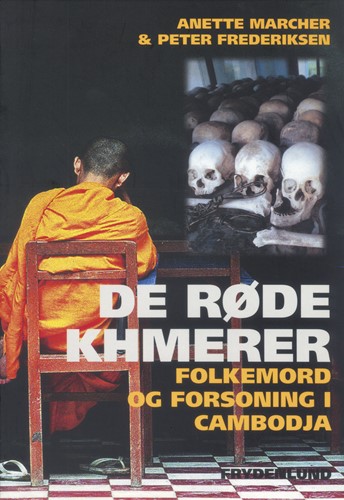

Cambodia Wont Easily Find Justice on Its Own
Nedenstående artikel er skrevet af Youk Chhang, der er leder af Cambodjas Dokumentationscenter.
Artiklen blev bragt i The New York Times, 14. februar 2002.
PHNOM PENH, Cambodia -- In 1977, my oldest sister, who had two little daughters, was accused of stealing rice from the collective kitchen. Despite her repeated denials, the Khmer Rouge cadre refused to believe her, and to prove his allegation, he took a knife and cut open her stomach. My sister’s stomach was empty, and she died.
Even if God can forgive that Khmer Rouge cadre, the man’s responsibility as a human being for what he did to my sister remains. Her murder was just one of millions of crimes committed by the Khmer Rouge, crimes that remain unjudged and unpunished. The Khmer Rouge have gotten away with murder. The world must not give up its efforts to bring their leadership to justice.
There has been a lot of talk about justice recently. Justice for the members of Al Qaeda and their victims, justice for Sierra Leone and the former Yugoslavia. For Cambodia, the process of justice seems to be moving in reverse. After years of negotiations, last Friday the United Nations said it would end its efforts to reach an agreement with the current Cambodian government on a tribunal to judge former leaders of the Khmer Rouge.
Although the government says it will go ahead with a tribunal of its own if necessary, the United Nations and Cambodia should resume their discussions and cooperate to establish one. More time has already passed since Cambodia asked the United Nations for assistance in this matter, in 1997, than the Khmer Rouge took to lay waste to Cambodia and kill 40 percent of its population. Last August King Norodom Sihanouk signed a law establishing the special Khmer Rouge Tribunal, but the United Nations says the complicated formula that the law sets out for a court with Cambodian and foreign judges and prosecutors may not provide impartial justice.
The survivors and their children, fearing that the government will be reluctant or unable to pursue the guilty effectively, have placed their hopes in the United Nations. They want assurance that all former leaders indicted by the tribunal will be arrested and prevented from fleeing. And, knowing that only the highest standards of justice will allow their country to move toward healing, they want to be sure due process applies to the accused.
Under the Khmer Rouge, an invisible organization called Angkar governed every aspect of Cambodians lives, using techniques of psychological terror.
The legacy of its insane actions remains with us today, not only in Cambodia’s political and economic underdevelopment but also in the ruptured social structures that resulted from Angkar’s relentless assault upon religion and the family.
Those of us who work at the Documentation Center of Cambodia have spent seven years trying to document the millions of crimes and atrocities committed under the Khmer Rouge regime. The centers core objectives are the promotion of memory and justice, both of which are critical foundations for establishing the rule of law and genuine national reconciliation in Cambodia. So far the center has documented 19,440 mass graves and 167 extermination centers. It has collected more than 600,000 pages of Khmer Rouge documents. Our monthly magazine, Searching for the Truth, sends information we have uncovered to villages all over the country.
Twenty-three years after the fall of the Khmer Rouge regime, some of its leaders continue to live in freedom in Cambodia. While many of the regimes victims live in dire poverty, some of these former leaders, like Ieng Sary and his wife, Ieng Thirith, are even free to travel to Thailand for expensive medical treatment. It would be relatively easy to bring these people to justice. All it takes is a meeting of political wills between the international community and Cambodia. That is within reach. It would be yet another tragedy for Cambodia if the momentum is allowed to fade and justice is further delayed.
In 1994 the United States Congress passed the Cambodian Genocide Justice Act, affirming American support for efforts to bring the Khmer Rouge to justice. America could help Cambodia now by reaffirming that support. It should speak out on the necessity for United Nations participation in forming a tribunal whose credibility will not be doubted. Unless powerful voices are heard from the international community, justice may never come to Cambodia.











